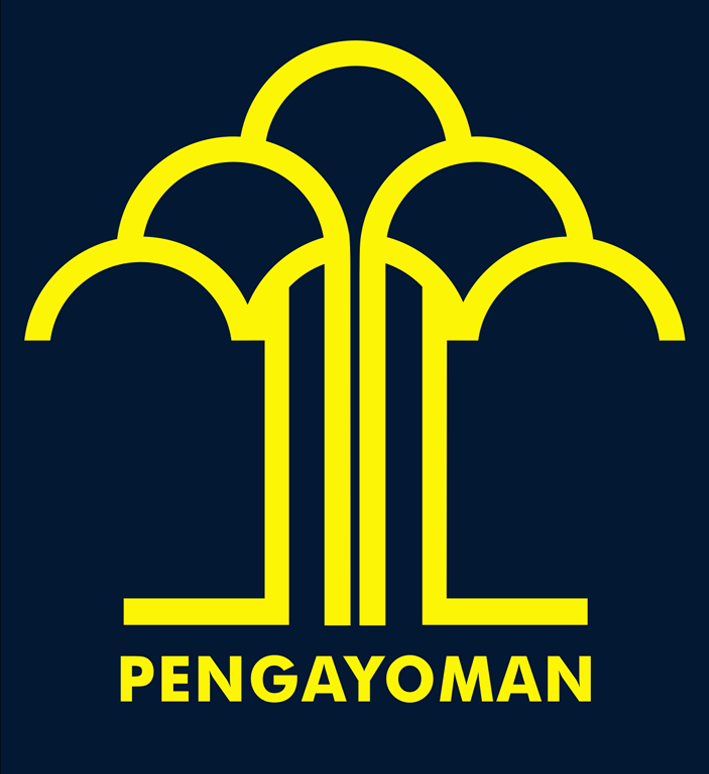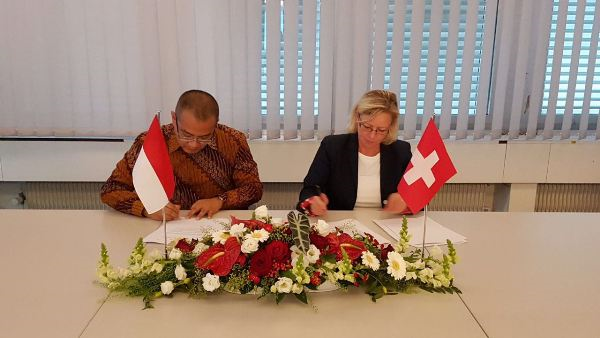Including tracking the whereabouts of people and assets suspected of being related to criminal acts.
Switzerland is often considered as one of the safest places to store assets resulting from crimes from other countries, including Indonesia. This assumption now deserves to be questioned because Indonesia and Switzerland have reached a treaty on mutual legal assistance.
The two countries have agreed on the Mutual Legal Assistance Treaty at the end of last August 2017. There are a number of provisions that have been agreed upon in the negotiation process for representatives of the two countries. The MLA Treaty is believed to be beneficial for Indonesia, especially in narrowing the space for criminals who want to hide the proceeds of their crimes abroad.
Director of the Central Authority and International Law of the Ministry of Law and Human Rights, Cahyo R. Muzhar, in 2017 assessed that this Treaty was a positive breakthrough in law enforcement in Indonesia and cooperation between the two countries. The Chief Negotiator for Indonesia said that with the MLA Treaty, Indonesia and Switzerland could exchange information regarding alleged criminal acts committed by certain people and related to the two countries.
This Treaty also serves as a warning to corruptors, tax evaders, and narcotics syndicates not to hide funds suspected of proceeds from crimes to Switzerland. With this Treaty, there is a solution to the problem of jurisdiction in law enforcement. Indonesian law enforcement officers have easier access to information about the escape of criminal assets to Switzerland.
"(MLA) can be used for the legal process of investigation, prosecution, until the execution of decisions that have permanent legal force. Investigations can include witness statements, locate individual’s whereabouts, tracing if there are assets in the form of moveable assets, houses, land and others which can use the MLA," said Cahyo to Hukumonline when met at his office.
In the MLA, it is stated that Indonesia can request Switzerland for assistance in carrying out coercive measures against perpetrators of crimes such as searches, freeze accounts, or opening suspected bank accounts. For other non-coercive measures, Indonesia can also request data on a list of companies suspected of being linked to money laundering. However, it should be noted that this cooperation does not include extradition and corporal punishment of perpetrators of criminal acts.
Based on information obtained by Hukumonline, there are 11 points of cooperation that have been agreed. MLA includes actions to assist in presenting witnesses in foreign jurisdiction; request documents, records, and evidence; handling of objects and assets for the purpose of confiscation or return of assets; provide information relating to a criminal act; locate the whereabouts of a person and his assets; trace for the location and data of a person and his assets, including checking internet sites associated with that person. In addition, tracking, freezing, confiscation of proceeds and tools used in committing criminal acts; request documents related to a criminal act; detain someone for interrogation and confrontation (with witnesses/other evidence); summon witnesses and experts to give statements; as well as providing other assistance in accordance with the treaty which is not against the law of the requested country.
Cahyo hopes that this MLA treaty can be implemented by Indonesian law enforcement agencies as well as possible. Moreover, the process towards a Treaty between the two countries has taken a long time, since 2008. After several bilateral meetings, Switzerland finally agreed the treaty on mutual assistance in criminal matters.
"With them opening or accepting or agreeing (with MLA) I think the beginning is a good faith from Switzerland to cooperate with us and hopefully this can be implemented optimally by our law enforcement," said Cahyo.
Why Switzerland?
In 2015 there was a scandal that shocked the country and shocked the banking world. An international bank is known to set up accounts in Switzerland for the benefit of international crimes, businessmen, politicians and celebrities whose aim is to avoid paying taxes. Switzerland has long been known as a country with a very strict banking secrecy system.
When asked why he chose Switzerland in this treaty, Cahyo had a similar reason. "Because there are quite a lot of cases in which the proceeds of the crime are suspected to be in Switzerland," said Cahyo.
According to Cahyo, Switzerland is one of the countries where various financial centers of the world are located, including banks or various companies that offer and provide investment services. “Also, the people may say that this is a place where corruptors put their money. It's not that I'm defending Switzerland, but Switzerland also has an interest," he explained.
Even so, Cahyo is reluctant to accuse a country of being a place for corruptors to launder money without having initial data. Moreover, developed countries have their own rules which are sometimes not in accordance with the wishes of other countries to disclose data regarding oil and gas a transnational crime. Certain countries have grounds for refusing the request in question. "Why are we with Switzerland because it is suspected that many people keep their money in Switzerland, (that is) one of them," he concluded.
The MLA treaty, said Cahyo, is a positive step for the government because Switzerland is one of the countries that are members of the European Union. He hopes that this is an entry point for Indonesia to open similar cooperation with other countries. In the future, there are at least two countries that are targeted by the government to make the same treaty, namely Russia and France.
“It is on our list that we will negotiate with Russia. We have exchanged drafts. We also have an internal discussion in France, maybe at the end of this year we will have an internal meeting first, so we can get to know each other," he added.
Head of the Sub-directorate of Mutual Assistance in Criminal Matters at the Ministry of Law and Human Rights, Sumarsono, added that apart from Switzerland, his party had also made treaties with other Asian countries, such as Hong Kong, Iran, India and China. Meanwhile, cooperation with Japan is in the form of reciprocity. There is one international narcotics case related to the Sakura country.
"We also went to Japan, studied the case, how Japan studied this case. This means that a request is not only released, but also escorted, we have discussions, and coincidentally Japan has a need with us, there is a return visit, we are still coordinating continuously, we get shipments from Japan, some of the data we ask for, "explained Sumarsono.
Cross-agency delegation
The Ministry of Law and Human Rights is not alone in making this treaty. There are a number of related Ministries/Institutions that are also involved in the treaty, such as the Attorney General's Office, the Police, BNN, the Directorate General of Taxes as law enforcement officers, PPATK as financial transaction analyst, the Ministry of Finance which is the state treasurer and also the Ministry of Foreign Affairs. Meanwhile, Switzerland is only represented by the local Ministry of Justice.
“I want all stakeholders, as broadly as possible, even though it may be related to a small but on board. We have to start learning, Indonesia is one, it cannot be divided," he said.
At least 15 people participated in the negotiation process. In addition to Cahyo as Chief Negotiator, there are also the names of Linggawaty Hakim (Ambassador of the LBBP RI to the Swiss and Liechtenstein Confederations), Ricky Suhendar (Director of Law and Political and Security Agreements, Ministry of Foreign Affairs), Rokhmad Sunanto (Director of Money Laundering, National National Narcotics), Desy Meutia Firdaus (Head of Sub-Directorate of Corruption Crimes, Jampidsus, Attorney General's Office).
Furthermore, Sumarsono (Head of Sub-Directorate of Mutual Assistance in Criminal Matters, Ministry of Law and Human Rights), Indra Rosandry (Head of Sub-Directorate of Law and Law Enforcement Cooperation, Ministry of Foreign Affairs), Fithriadi Muslim (Head of Legislation Group, Center for Financial Transaction Reports and Analysis), Andi Eva Nurliani (Head of Reciprocal Aid Handling in Criminal Matters, Ministry of Law and Human Rights), and Dodi Darjanto (Head of International Legal Aid Subdivision, Divhubinter POLRI), Teguh Widodo (Head of Investigation Section I, Directorate General of Taxes, Ministry of Finance).
Other members of the Delegation are Dina Juliani (Analyst for Legal Aid Advisory, Ministry of Law and Human Rights), Evren Gilbert (Analyst for Legal Aid Considerations, Ministry of Law and Human Rights), Alfiani Safitri (Analyst for Legal Aid Considerations, Ministry of Law and Human Rights), Yudhi Y. Saroja (Staff of the International Crime Division, Divhubinter POLRI) , S.F. Aritonang (Investigator at the Directorate of Money Laundering, National Narcotics Agency), Timbul Situmorang (Coordinator for Political Functions, Indonesian Embassy in Bern), and Adkhilni M. Sidqi (Secretary III, Indonesian Embassy in Bern, Switzerland).


